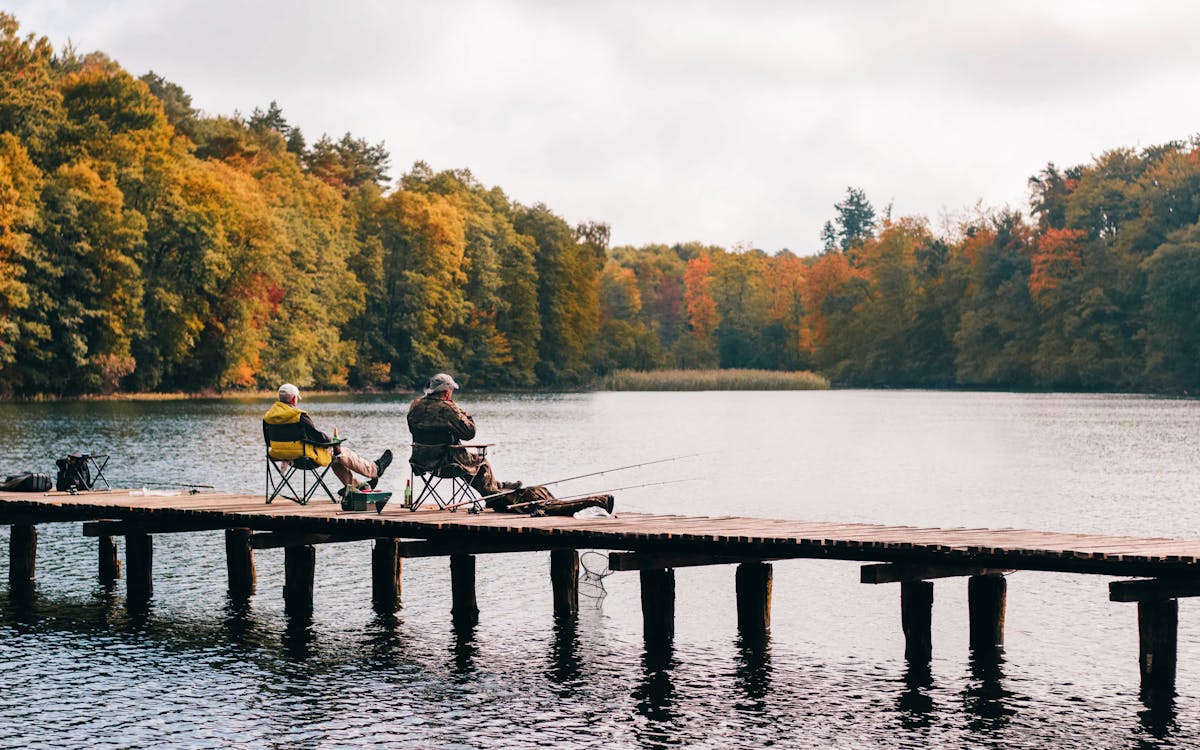Fly fishing is more than just a recreational activity; it’s an immersive experience that allows individuals to forge a deeper connection with the natural world. Unlike conventional fishing, fly fishing requires a nuanced understanding of ecosystems, patience, and a meditative approach to the outdoors. This article explores why fly fishing is an exceptional way to engage with nature, highlighting its unique benefits and the profound sense of tranquility it brings.
Embracing the Natural Environment
One of the primary reasons fly fishing is such a powerful way to connect with nature is the need for an intimate understanding of the natural environment. To be successful, anglers must become keen observers of their surroundings, noting the behavior of insects, the flow of water, and the habits of fish. This close observation fosters a deep appreciation for the intricate balance of ecosystems. As anglers study the life cycles of aquatic insects and the habitats of various fish species, they develop a profound respect for the environment and the delicate interdependencies within it. This immersive engagement with nature transforms fly fishing into a practice that is as educational as it is enjoyable.
Cultivating Patience and Mindfulness
Fly fishing is not a sport for those seeking instant gratification. It demands patience, precision, and a mindful approach, which naturally cultivates a sense of peace and presence. The rhythmic act of casting, the stillness required while waiting for a bite, and the focus needed to execute a perfect cast all contribute to a meditative state. Anglers often find that the quiet solitude of standing in a river or by a lake, surrounded by the sounds of nature, helps them disconnect from the stresses of daily life. This mindfulness practice, inherent in fly fishing, promotes mental well-being and allows for a deeper, more serene connection with the natural world.
Fostering Conservation Awareness
Engaging in fly fishing also nurtures a strong conservation ethic. Many fly fishers are passionate advocates for preserving the environments in which they fish. The sport’s emphasis on catch-and-release practices underscores the importance of maintaining healthy fish populations and pristine waterways. Organizations dedicated to fly fishing often participate in conservation efforts, such as stream clean-ups, habitat restoration projects, and educational programs about sustainable fishing practices. By participating in these initiatives, anglers contribute to the preservation of natural habitats, ensuring that future generations can also experience the joys of fly fishing and the beauty of untouched landscapes.
Exploring Fly Fishing Destinations
Exploring new fly fishing destinations further enhances the connection with nature, offering unique experiences and environments. Locations like Pyramid Lake in Nevada, renowned for its enormous Lahontan cutthroat trout, provide anglers with unforgettable adventures. Utilizing fly fishing guide services in Pyramid Lake Nevada or any other place allows enthusiasts to deepen their knowledge and appreciation of local ecosystems. These guides not only enhance the fishing experience by sharing expert techniques and insider knowledge but also educate on the importance of conservation and respecting local wildlife. Traveling to different fly fishing destinations broadens one’s understanding of diverse natural landscapes, fostering a global appreciation for the sport and the environments it seeks to protect.
Building a Community of Nature Enthusiasts
Fly fishing often brings together individuals who share a passion for nature and conservation, fostering a strong sense of community among enthusiasts. Local fishing clubs and online forums provide platforms for anglers to share experiences, tips, and environmental concerns. Participation in these communities often leads to lifelong friendships and collaborative conservation efforts. For instance, groups may organize river clean-ups, habitat restoration projects, or educational workshops for new anglers. This sense of camaraderie not only enhances the fly fishing experience but also strengthens collective efforts to preserve and protect natural environments. By engaging with others who share a similar passion, anglers contribute to a broader movement dedicated to environmental stewardship and sustainable fishing practices.

Enhancing Physical and Mental Well-being
The physical and mental health benefits of fly fishing are significant and multifaceted. Physically, the activity involves wading through rivers, casting, and sometimes hiking to remote fishing spots, providing a low-impact workout that improves strength, balance, and endurance. Mentally, the serene environment and rhythmic nature of fly fishing serve as an effective stress reliever. The practice of mindfulness, as anglers focus on their technique and surroundings, can reduce anxiety and promote a sense of calm. Furthermore, spending time in nature has been proven to enhance mood and overall well-being. Whether through the quiet solitude of a solo fishing trip or the shared experience with friends or family, fly fishing offers a holistic approach to improving both physical and mental health.
Fly fishing is an exceptional way to connect with nature, offering a unique blend of environmental education, mindfulness, conservation awareness, and community building. Whether through observing ecosystems, engaging in mindful practices, exploring new destinations with fly fishing guide services in Pyramid Lake Nevada or any other place, or joining conservation efforts, fly fishing fosters a profound appreciation for the natural world. This rewarding activity not only enhances physical and mental well-being but also encourages a collective commitment to preserving our planet’s beautiful landscapes. In a world that often feels disconnected from nature, fly fishing provides a meaningful way to reconnect, reflect, and rejuvenate.



Leave a Reply